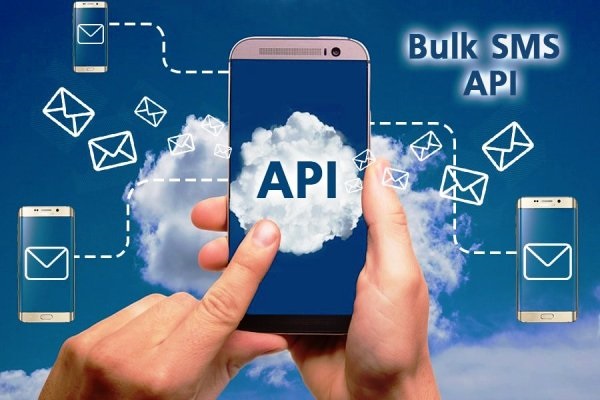How to Send Bulk SMS in India Using an API
In
today's fast-paced world, businesses need efficient and cost-effective ways to
connect with their customers. Bulk SMS marketing offers a powerful solution, reaching a large audience
instantly and directly on their mobile devices. But managing large-scale SMS
campaigns can be tedious if done manually. This is where Bulk SMS APIs come in,
transforming the way you communicate with your customers in India.
What
is a Bulk SMS API?
A
Bulk SMS API (Application Programming Interface) acts as a bridge
between your application or software and an SMS gateway provider in India. It
allows you to programmatically send SMS messages to a large number of
recipients at once, eliminating the need for manual intervention. This API
integration offers several advantages:
Automation: Schedule and trigger SMS campaigns automatically based on
specific events or customer interactions.
Scalability: Send thousands of SMS messages effortlessly, ideal for
large-scale marketing campaigns or customer notifications.
Customization: Personalize messages with recipient names, dynamic content,
and sender IDs for a more targeted approach.
Delivery
Reports: Track delivery status and receive
real-time updates on message delivery success or failure.
Cost-Effectiveness: Bulk SMS APIs often offer competitive pricing compared to
traditional SMS services.
Choosing
the Right Bulk SMS API Provider in India
The
Indian market offers a plethora of Bulk SMS API providers. Here are some key
factors to consider when making your choice:
Reliability
and Uptime: Ensure the provider
boasts a robust infrastructure with high uptime guarantees for seamless message
delivery.
Pricing
and Features: Compare pricing
plans, message credits, and additional features like two-way messaging or
scheduled campaigns.
Security
and Compliance: Select a provider
with robust security measures to protect sensitive customer data and adhere to
Indian regulations like TRAI guidelines.
API
Documentation and Support: Choose a provider
that offers comprehensive API documentation and responsive customer support to
assist with integration.
Getting
Started with Bulk SMS API Integration
Once
you've chosen your provider, follow these general steps to integrate the Bulk
SMS API into your application:
Sign
Up and Obtain Credentials: Register with your
chosen provider and acquire the necessary API key, username, or password for
authentication.
Review
API Documentation: Thoroughly study the
provider's API documentation, which details API endpoints, parameters, and
supported functionalities.
Develop
Your Integration Code: Use your preferred
programming language to write code that interacts with the API. This code will
typically involve constructing an HTTP request with recipient details, message
content, and authentication credentials.
Test
and Debug: Rigorously test your
integration to ensure messages are sent correctly and handle potential errors
gracefully.
Implement
and Monitor: Integrate the API
into your application and monitor delivery reports to track campaign
performance.
Bulk
SMS Use Cases for Indian Businesses
Bulk SMS
APIs offer a wide range of applications for Indian businesses across various
sectors:
Marketing
and Promotions: Send promotional
offers, flash sales alerts, and loyalty program updates directly to customers'
mobiles.
Transactional
Alerts: Deliver order confirmations, shipping
notifications, and account verification codes for a seamless customer
experience.
Appointment
Reminders: Reduce appointment
no-shows by sending automated reminders for meetings, bookings, and service
appointments.
Customer
Support: Provide timely responses to customer
inquiries and offer proactive support notifications.
Feedback
and Surveys: Gather valuable
customer feedback through SMS surveys and polls to improve your services.
Beyond
the Basics: Advanced Features to Consider
Many
Bulk SMS API providers offer additional features that can enhance your
communication strategy:
Two-way
Messaging: Enable customers to
reply to your SMS messages, fostering two-way communication and building
stronger relationships.
Scheduled
Campaigns: Schedule SMS
campaigns in advance for optimal delivery times and personalized marketing
initiatives.
Short
codes and Sender IDs: Utilize short codes
or dedicated sender IDs to improve brand recognition and message recall.
SMS
Analytics: Gain insights into
message delivery rates, click-through rates, and other metrics to measure
campaign effectiveness.
Conclusion:
Embrace the Power of Bulk SMS APIs
By leveraging Bulk SMS APIs, Indian businesses can unlock a powerful communication channel to reach their target audience effectively. With automation, scalability, and real-time delivery tracking, Bulk SMS APIs empower businesses to streamline communication, enhance customer engagement, and drive growth in the ever-evolving Indian market.


